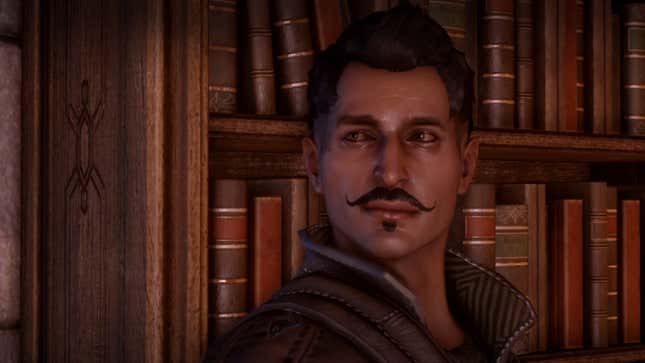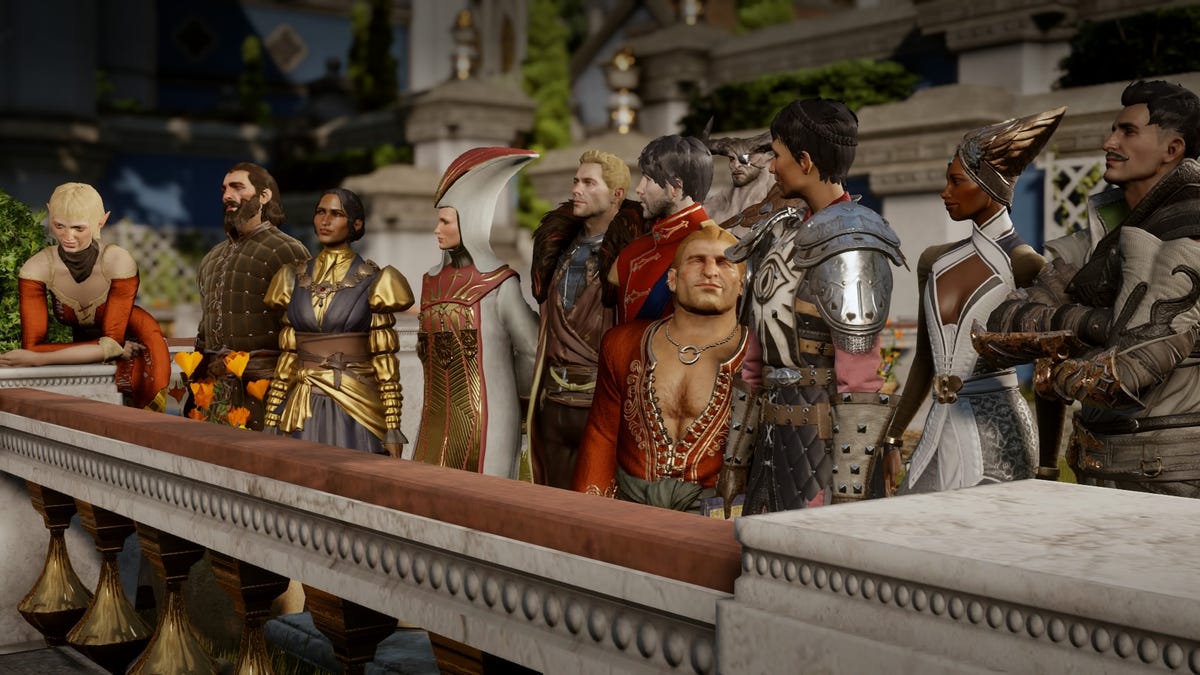
Throughout Dragon Age, the land of the Tevinter Imperium has been almost exclusively framed as a culturally homogenous, villainous place where mages rule without opposition, slavery is commonplace, and unspeakable evils made it the origin point of one of the Blight, one of the most ruinous phenomenon in the universe. Most of our frame of reference is from characters who were suffering at the ground level, at least until Dorian Pavus struts into view in Inquisition. By all accounts, Dorian should be thrilled with his setup in Tevinter. He’s the son of a powerful family, has been given every resource to nurture his magical talents, and is pretty much guaranteed a spot at the top of the country’s politics. But he is also his own man, and does not wish to cave to the life his family envisions for him. That includes standing proud as a gay man unwilling to continue his family’s bloodline, even as he is threatened with a magical take on conversion therapy at the hands of his own father.
Dorian escapes his home in Tevinter and is clearly jaded by the time he meets the Inquisitor. But as he watches the world change before him, how can he view his home country that, despite everything, he still loves? The Dragon Age series has often fallen into cynical cycles of scorching the earth, as if it can’t conceive of a better option. Dorian Pavus has been put through hell and back in Tevinter. He could have easily been a cautionary tale for how his home country is just as terrible as everyone in the series has ever told us. But instead, he’s a shining beacon proclaiming that it doesn’t have to be this way. Whether or not Dorian shows up in The Veilguard, which takes place partially in Tevinter, remains to be seen, but in Inquistion, he is radical hope personified. He is living, breathing proof that history is defined by those who believe that a better world is possible.

